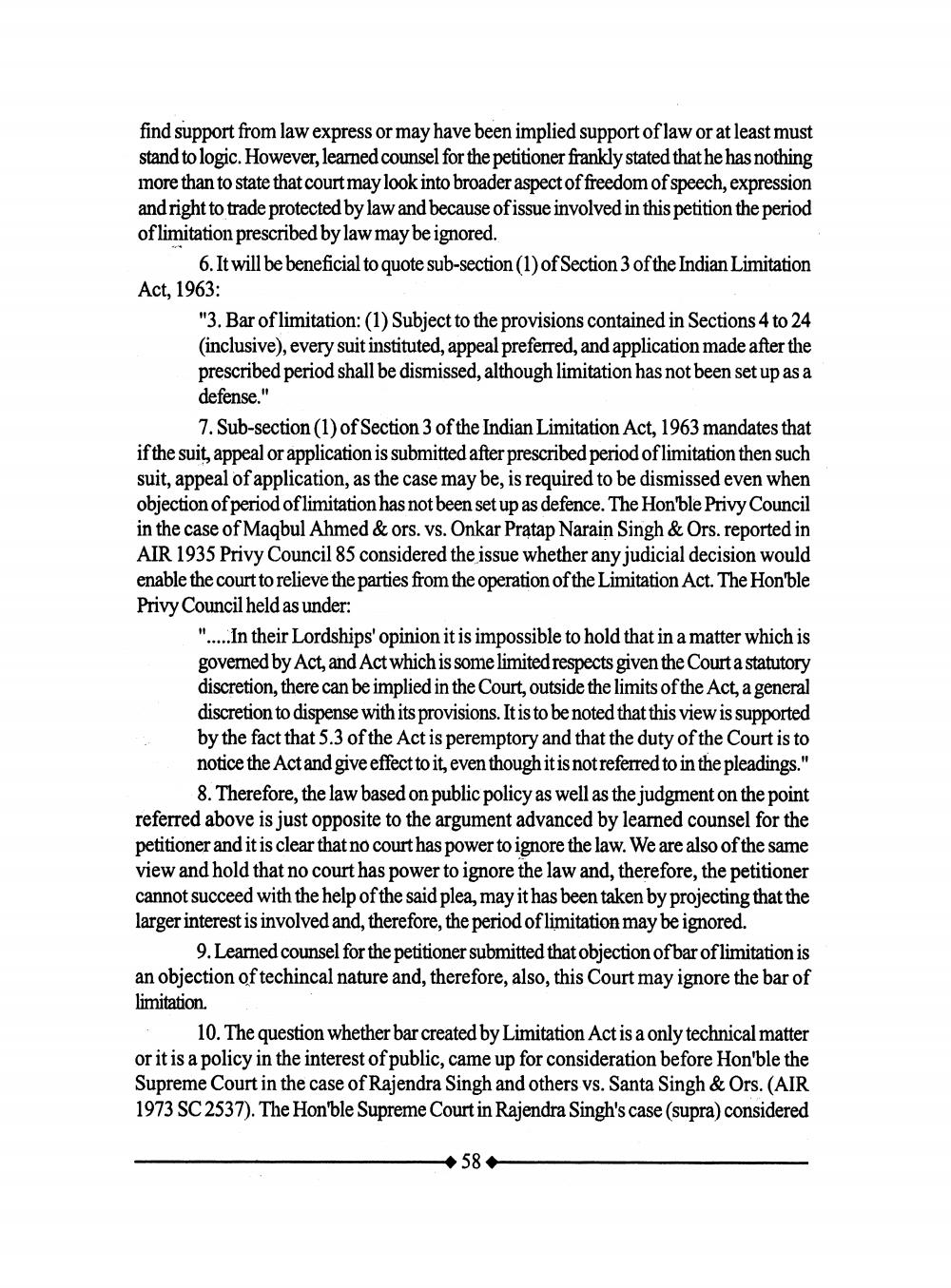________________
find support from law express or may have been implied support of law or at least must stand to logic. However, learned counsel for the petitioner frankly stated that he has nothing more than to state that court may look into broader aspect of freedom of speech, expression and right to trade protected by law and because of issue involved in this petition the period of limitation prescribed by law may be ignored.
6. It will be beneficial to quote sub-section (1) of Section 3 of the Indian Limitation Act, 1963:
"3. Bar of limitation: (1) Subject to the provisions contained in Sections 4 to 24 (inclusive), every suit instituted, appeal preferred, and application made after the prescribed period shall be dismissed, although limitation has not been set up as a defense."
7. Sub-section (1) of Section 3 of the Indian Limitation Act, 1963 mandates that if the suit, appeal or application is submitted after prescribed period of limitation then such suit, appeal of application, as the case may be, is required to be dismissed even when objection of period of limitation has not been set up as defence. The Hon'ble Privy Council in the case of Maqbul Ahmed & ors. vs. Onkar Pratap Narain Singh & Ors. reported in AIR 1935 Privy Council 85 considered the issue whether any judicial decision would enable the court to relieve the parties from the operation of the Limitation Act. The Hon'ble Privy Council held as under:
"....In their Lordships' opinion it is impossible to hold that in a matter which is governed by Act, and Act which is some limited respects given the Court a statutory discretion, there can be implied in the Court, outside the limits of the Act, a general discretion to dispense with its provisions. It is to be noted that this view is supported by the fact that 5.3 of the Act is peremptory and that the duty of the Court is to notice the Act and give effect to it, even though it is not referred to in the pleadings."
8. Therefore, the law based on public policy as well as the judgment on the point referred above is just opposite to the argument advanced by learned counsel for the petitioner and it is clear that no court has power to ignore the law. We are also of the same view and hold that no court has power to ignore the law and, therefore, the petitioner cannot succeed with the help of the said plea, may it has been taken by projecting that the larger interest is involved and, therefore, the period of limitation may be ignored.
9. Learned counsel for the petitioner submitted that objection of bar of limitation is an objection of techincal nature and, therefore, also, this Court may ignore the bar of limitation.
10. The question whether bar created by Limitation Act is a only technical matter or it is a policy in the interest of public, came up for consideration before Hon'ble the Supreme Court in the case of Rajendra Singh and others vs. Santa Singh & Ors. (AIR 1973 SC 2537). The Hon'ble Supreme Court in Rajendra Singh's case (supra) considered
58




